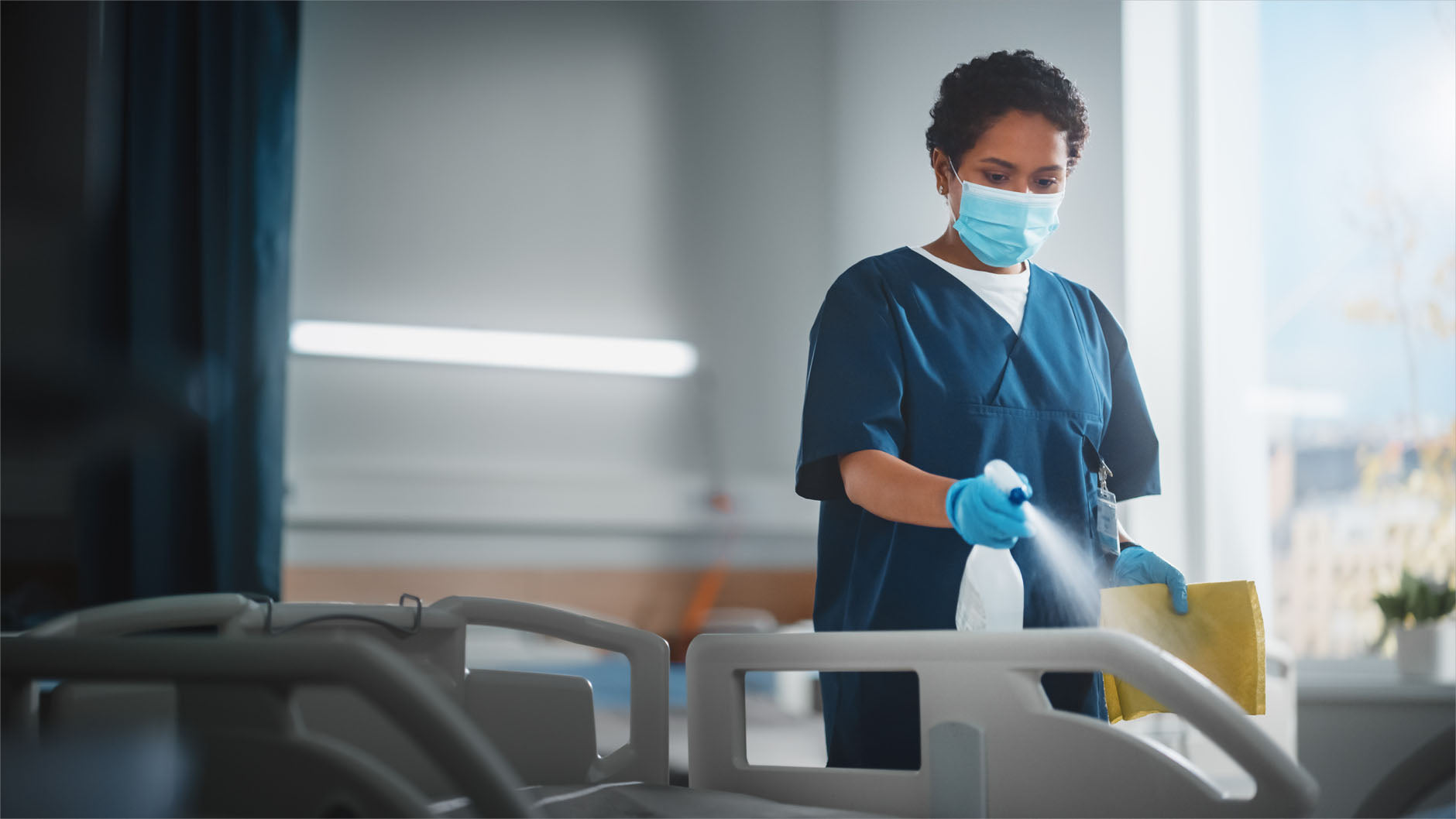
How to Prevent the Spread of Infection in Healthcare Settings
Hospital-acquired infections (HAIs) are longstanding problems in hospitals and healthcare. These infections can be caused by a variety of pathogens, including bacteria, viruses, and fungi, and can lead to a number of serious complications, including death.
The COVID-19 pandemic changed the way that we think about healthcare as this unprecedented infectious disease not only spread quickly and posed major health issues for the general population, but also encouraged the spread of infections in healthcare facilities across the nations. In fact, recent reports offered by the Centers for Disease Control and Prevention (CDC) demonstrate how quickly hospital-acquired infections (HAIs) can become a problem among patients, especially in the face of a pandemic. Research from 2021 reveals that, in comparison to 2019, healthcare settings experienced:
- Increased incidences of central line-associated bloodstream infections, methicillin-resistant Staphylococcus aureus (MRSA) bacteremia, and catheter-associated urinary tract infections
- Increased device-associated infections as a result of consistently changing safety guidelines and protocols
- Increased ventilator-associated events in the first quarter and third quarter of 2021
Being prepared is essential to preserving the health and well-being of both patients and healthcare personnel. Infection prevention and infection control should be a major focus for your facilities moving forward. Here's greater insight on how to prevent the spread of infection in healthcare settings.
Follow hygiene best practices to keep patients and healthcare workers safe
Healthcare personnel need to follow hygiene best practices to prevent exposure, possible infection, and the spread of infectious diseases in healthcare facilities. Best practices encompass a wide range of specific hygiene protocols that healthcare workers need to be aware of and follow which include:
- Observing proper hand hygiene by thoroughly washing hands prior to touching patients, after being exposed to body fluids, after touching patients, after touching any elements of an environment that may potentially be contaminated, and before clean procedures. Patients must also be expected to follow these rules to stay safe and healthy.
- Covering the mouth when coughing and sneezing and maintaining distance to prevent outbreaks from affecting patients and healthcare workers
- Engaging in physical distancing
- Properly sanitizing after disposing of potentially hazardous materials
As long as adherence to these protocols from both your patients and your staff is strong, you should see fewer infections spreading throughout your facilities.
Wear personal protective equipment (PPE) to reduce the transmission of pathogens
Taking standard precautions to prevent the transmission of body fluids, airborne pathogens, or germs means having your staff don the right PPE. Some of the most common PPE to employ for infection prevention includes gloves (which need to be removed prior to touching other surfaces after coming into contact with a contaminated one), masks, face shields and respirators certified by the National Institute for Occupational Safety and Health (NIOSH), gowns, and eye protection. The proper use of approved PPE goes a long way in helping you make everyone in your facilities safer from potential infections that would otherwise be unavoidable, regardless of whether it's pneumonia, influenza, or something entirely new.
Pay close attention to environmental hygiene and develop routine practices for cleaning and disinfecting
Making sure that staff are trained on proper hand-washing techniques and wearing approved PPE is an essential measure to prevent the spread of infection in your healthcare facilities. However, handwashing and PPE aren't the only precautions you can take to reduce the number of infections in your hospital.
One of the top hospital policies to employ is a strict environmental hygiene policy that addresses the various surfaces in the hospital (i.e., sheets, doorknobs, and flat surfaces), the disposal of infectious waste, and the proper disinfection and sterilization of medical devices that will be used to treat various ailments that patients are experiencing.
Screening patients to understand what type of infections they might currently have and how to prevent spreading is just as crucial as sterilizing your facilities' environments. Knowing what you're up against and having the proper cleaning solutions and materials to effectively prevent transmission is critical to infection prevention and control. With a deep understanding of the various contaminants, how to prevent them from infecting patients and staff, and strict protocols in place for your cleaning staff, everyone can move forward with the peace of mind they need, knowing that there's less of a risk of spreading infectious diseases.
Work with ECRI consultants to improve infection prevention and control
Infection control services and consulting can provide your organization with the support you need to better understand how infection spreads, where the greatest risks lie, and how you can prepare for the future to improve occupational safety. ECRI is an independent, nonprofit organization dedicated to improving the quality and safety of your facilities with multiple services and solutions designed to target areas like infection prevention and control.
Our expert consultants can support your organization by assisting you with outbreak preparedness to help you avoid issues you may have encountered during the height of the COVID-19 pandemic, evaluating potential areas of weakness or vulnerabilities in your current protocols, investigating issues related to infection control to help you proactively defend against these risks, and developing and implementing new action plans that will help your facilities fare better in the face of infections in the future.
However, it's important that your healthcare workers are just as prepared and informed as they encounter potentially infectious diseases in the workplace. ECRI offers in-depth resources and educational tools to give clinical and professional staff the training, knowledge, and support they need to feel confident navigating their workspace and reducing the risk of passing on or contracting these illnesses themselves. Our extensive e-learning catalog offers a host of online courses, as well as education credits for those working toward higher education.
If a safer work environment is of the utmost importance to your organization, learn more about how ECRI’s knowledge can help you reduce infection risks at www.ecri.org/solutions/infection-prevention.
